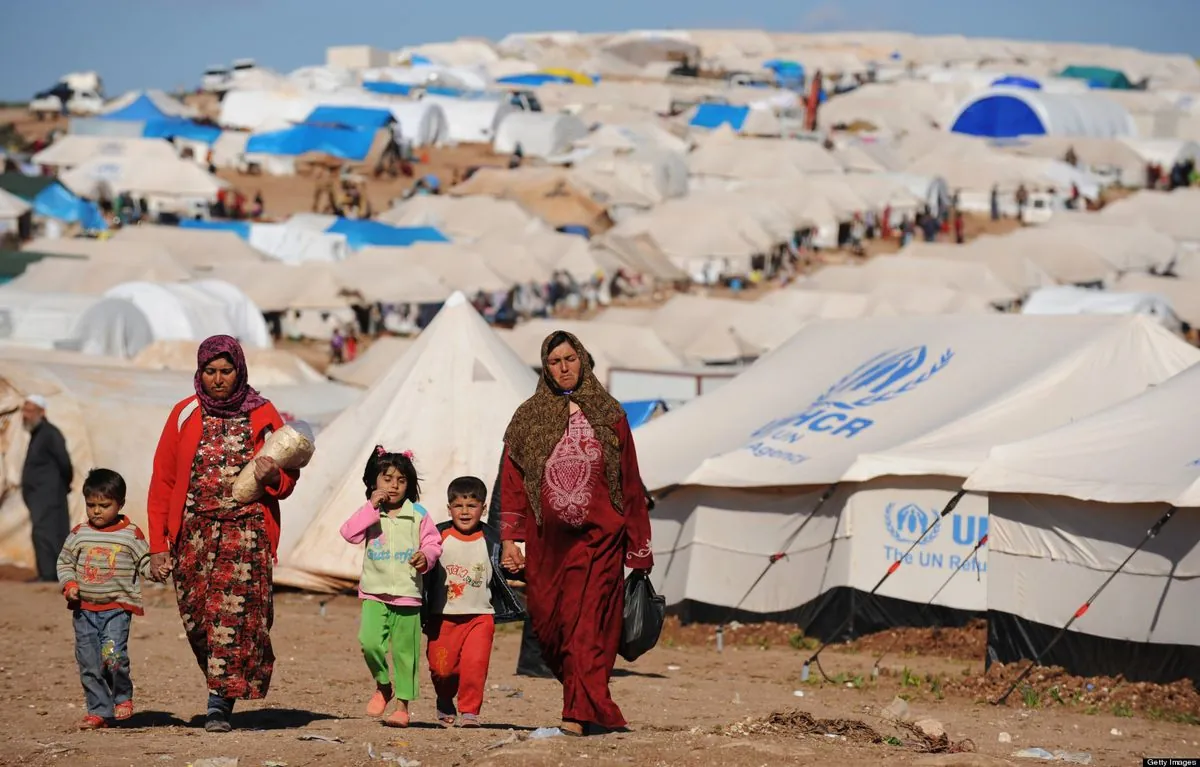In a dramatic turn of events, thousands of civilians from southern and eastern Lebanon have sought refuge in Beirut as Israeli airstrikes intensify. The mass exodus, which began in the early hours of Tuesday, September 24, 2024, has placed immense pressure on the capital city's resources and infrastructure.
Zainab Fnesh, a 38-year-old mother of six, recounted her family's harrowing 14-hour journey from their village near Tyre to Beirut. The trip, typically lasting just over an hour, was prolonged by heavy traffic as countless families fled the conflict zone. Fnesh described the experience as the most frightening of her life, with constant airstrikes visible in the distance and injured people along the main highway.
The escalation of hostilities between Israel and Hezbollah has resulted in significant civilian casualties. According to Lebanese Health Minister Firass Abiad, at least 569 people, including 50 children, have lost their lives across the country. The conflict has its roots in the complex history of the region, with Lebanon having experienced multiple wars and periods of instability since the 1975-1990 civil war.
Filippo Grandi, the UN High Commissioner for Refugees, expressed grave concern over the situation, stating that Israeli airstrikes in Lebanon are "relentlessly claiming hundreds of civilian lives." The UNHCR, established in 1950, has been working tirelessly to provide aid and protection to those displaced by the conflict.
Beirut, still recovering from recent attacks, is struggling to accommodate the influx of displaced people. The city's population of 2.2 million in its metropolitan area is swelling as civilians seek safety. Local residents, businesses, and organizations have mobilized to provide shelter and support:
- Schools have been converted into temporary shelters
- Individuals are opening their homes to displaced families
- Hotels and Airbnbs have reduced prices to accommodate those fleeing
- Aid efforts have been rapidly organized by government institutions, nonprofits, and religious organizations
The healthcare system, already under strain from recent events and ongoing challenges, is now preparing to treat scores of injured evacuees from the south and east. Lebanon's healthcare sector, which includes both public and private providers, has faced significant difficulties in recent years due to economic crises and the COVID-19 pandemic.
"We now have hundreds of people staying in classrooms here, most of them are women and children. We're bringing mattresses, blankets, cooking utensils, clothes, and food. Most people fled with few belongings. They need all the help they can get."
The conflict has not only affected southern Lebanon but has also reached Beirut itself. An airstrike in the Dahiyeh district, known as a Hezbollah stronghold, resulted in 45 fatalities last Friday, including 16 Hezbollah militants. On Tuesday, another strike in the same area claimed six lives and injured 15 others, with Israel claiming to have eliminated Ibrahim Qubaisi, the head of Hezbollah's rocket unit.
As the situation escalates, concerns are growing about the potential for a full-scale war. U.S. President Joe Biden, in his final address to the United Nations General Assembly, warned against such an outcome, stating it was not in anyone's interest. However, many Lebanese citizens fear that the conflict has already crossed a critical threshold.
Khodr Mahmoud, a 55-year-old man who was paralyzed during the 2006 Lebanon War, expressed his apprehension: "This war has already escalated. I'm worried we could be seeing this conflict escalate even more than it did back then."
As Beirut grapples with this humanitarian crisis, the international community watches closely, hoping for a de-escalation of tensions and a peaceful resolution to the conflict. The coming days will be crucial in determining whether Lebanon can avoid another devastating war and protect its civilian population from further harm.
